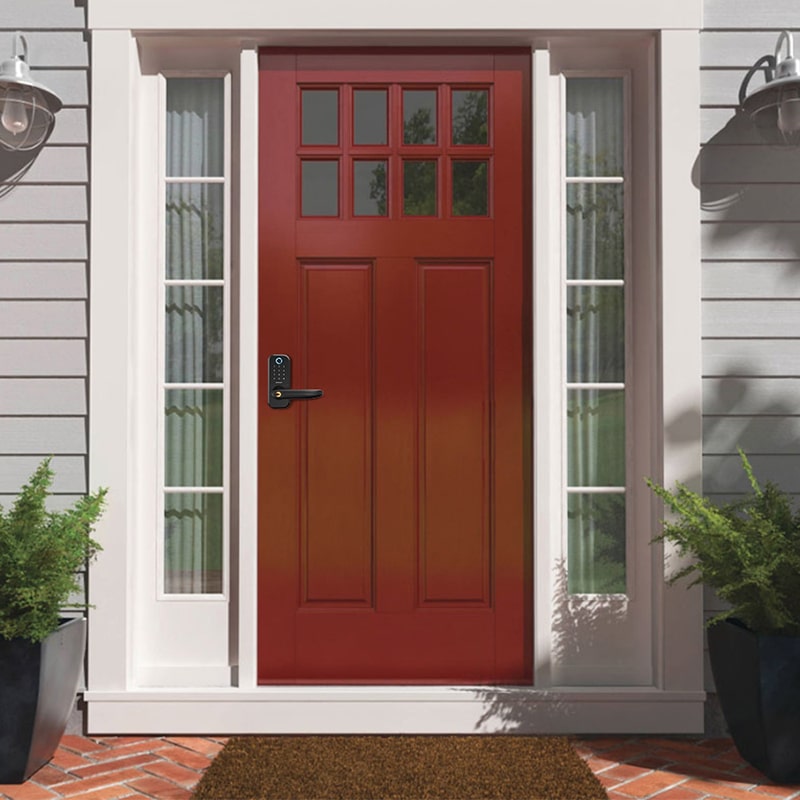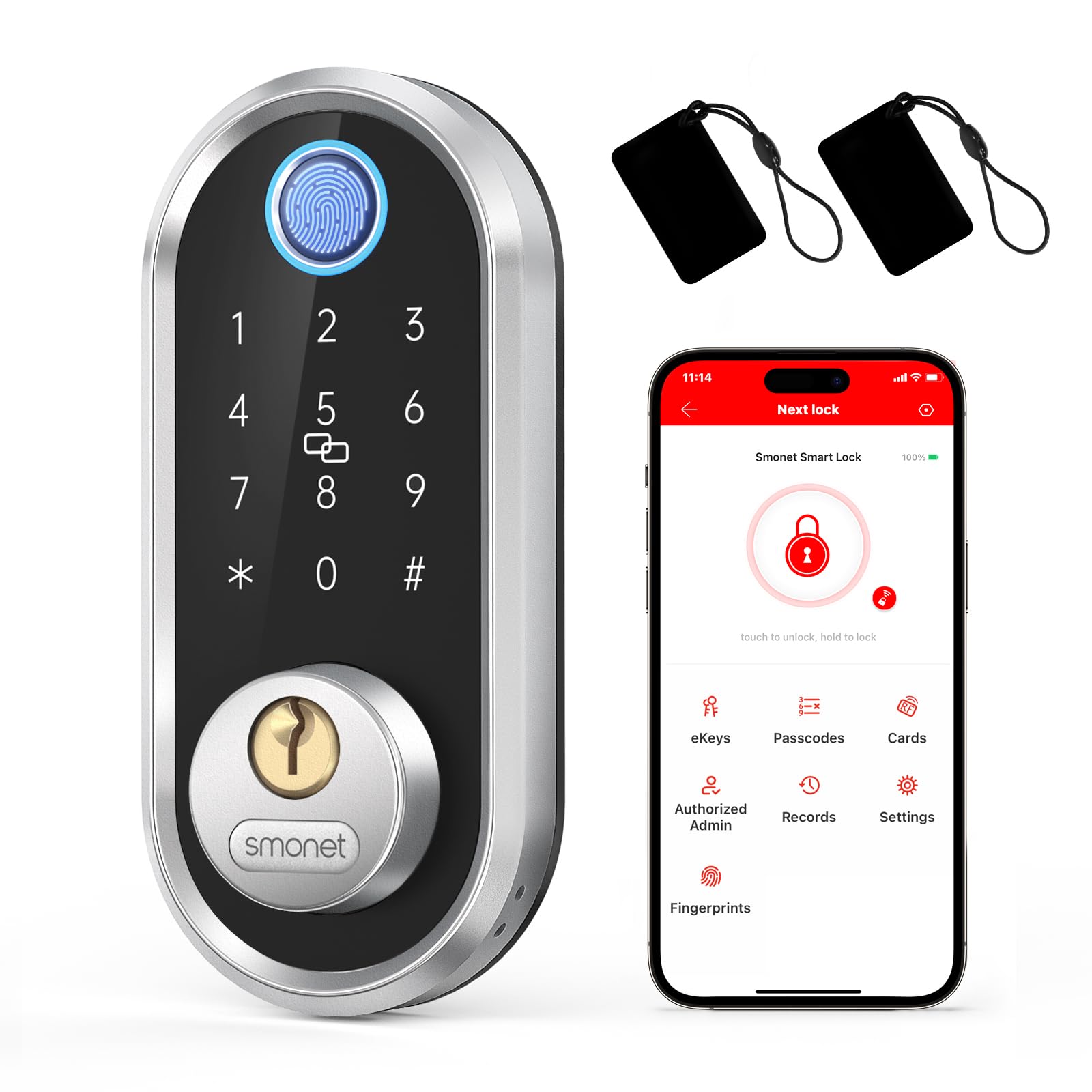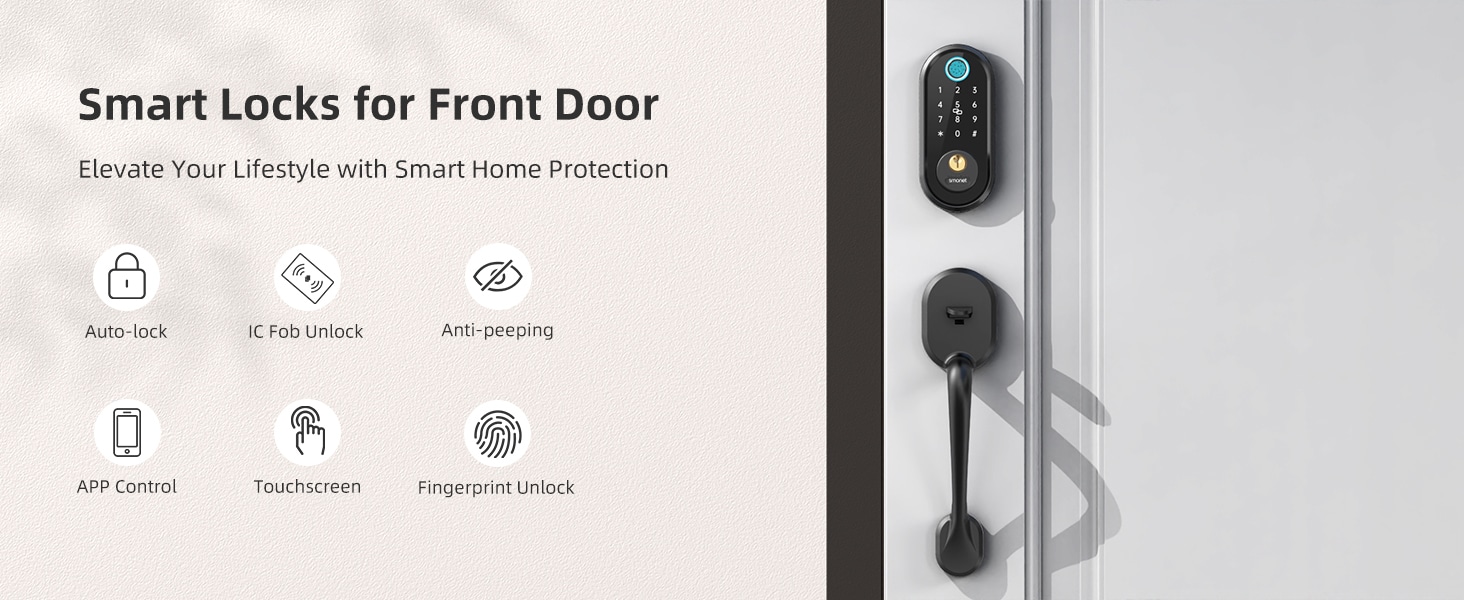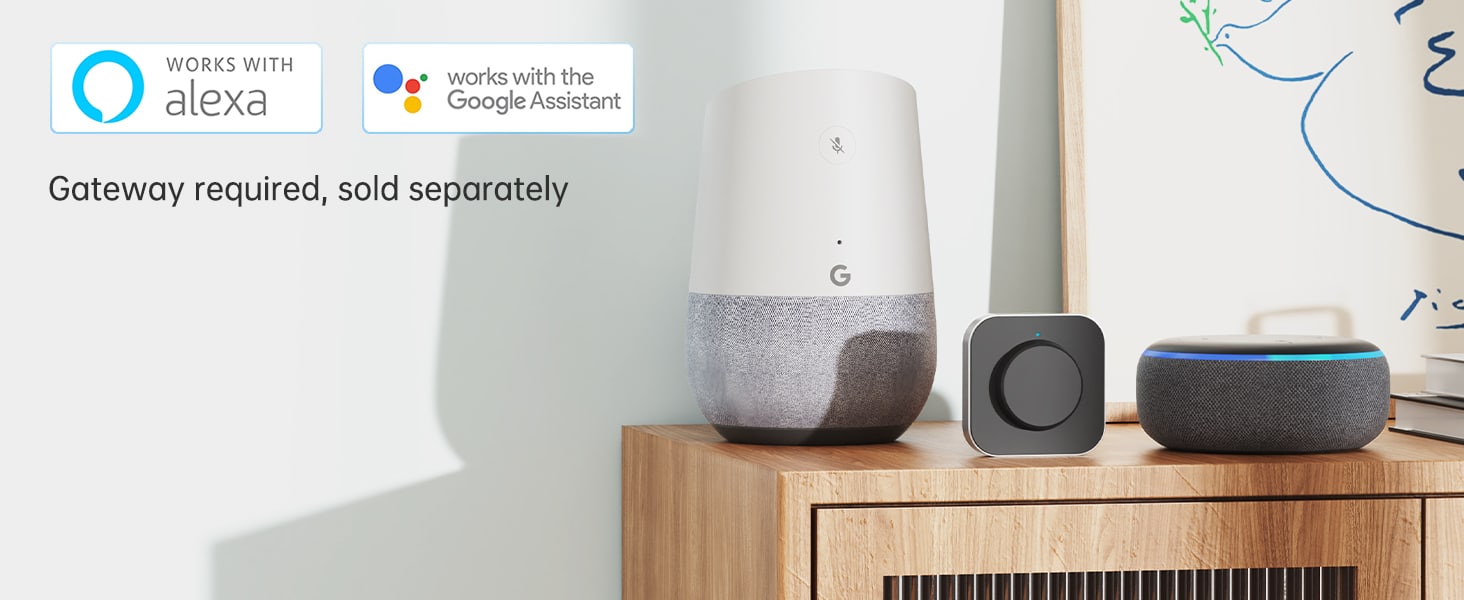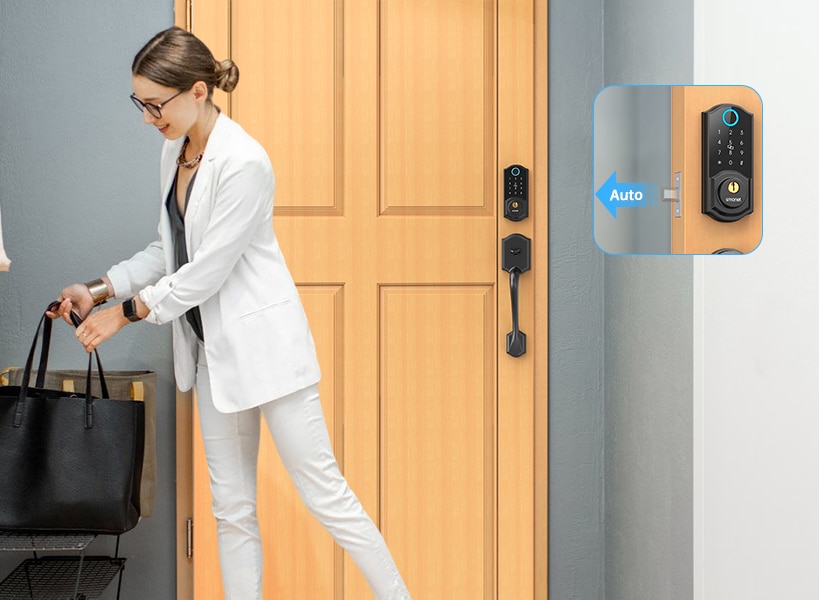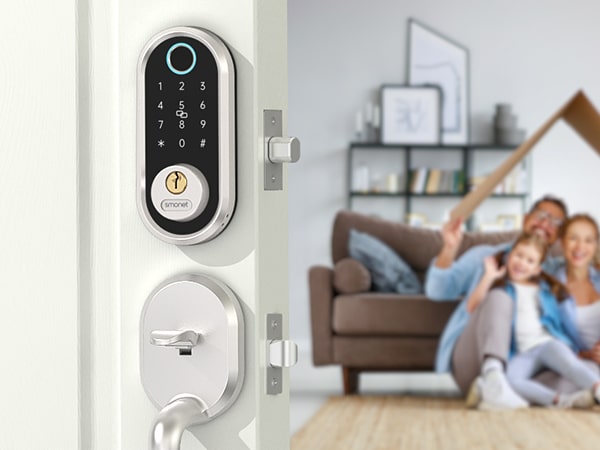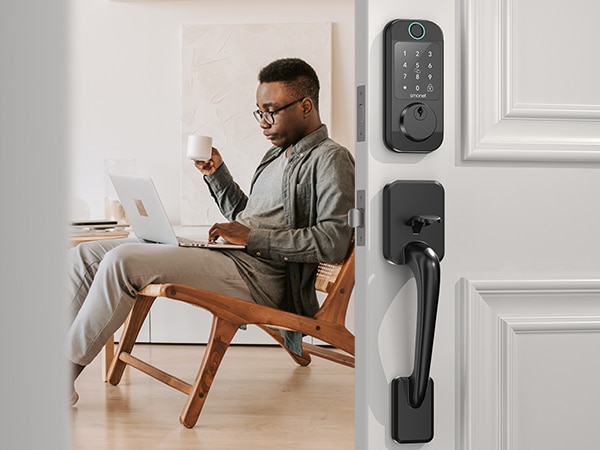Can door handle smart lock Function in the Absence of WiFi?
Science fiction TV hit, “Star Trek,” showcased smart locks being used ubiquitously in the show. A crew member would approach a door, and it would magically slide open, quite like an advanced version of Face ID. Presently, smart locks are a part of everyday life globally. Perks such as keyless door access, granting family/friends entry without needing physical key duplication, hands-free utilization, and remote controlling are among the many advantages of WiFi-integrated smart door locks.
Irrespective of whether they are operated through a code, fingerprint, or a smartphone app, these locks are incredibly convenient, leading to a decline in the need for creating additional keys for family, friends, caregivers, etc. However, the question beckons – are smart locks dependent on WiFi? Let’s endeavor to answer this query in this piece.
Do smart locks require Wi-Fi?
Security door smart locks today come with the additional feature of WiFi connectivity, allowing remote control from any WiFi-enabled location.
One key feature of entry door keyless entry is that they can use an application to remotely enable entry for a visitor, regardless of your distance from home. However, this remote access is only possible with internet connectivity.
Offline access is still possible using traditional methods such as fingerprints, passwords, cards, or keys.
We understand the challenges of choosing between traditional and smart locks or selecting the right smart lock. We’re here to help, starting with an introduction to some of the leading smart lock manufacturers for metal doors.
Smonet provides a range of high-quality keyless WiFi entry door locks. One notable option is the Smonet Smart WiFi deadbolt lock, which seamlessly integrates with WiFi, allowing users to lock and unlock their doors from anywhere. These advanced locks also have the capability to connect to Alexa, enabling convenient voice-command operations for added ease of use.
Kwikset wifi smart lock deadbolt
Kwikset, a leading manufacturer of WiFi enabled smart lock deadbolts, provides a diverse range of WiFi-compatible locks, one of which is the Kwikset Halo Wi-Fi Smart Lock. The accompanying app not only sends notifications for lock activity but also allows users to access detailed event history, providing valuable insights into the lock’s usage. In addition, these locks are compatible with popular voice assistants such as Alexa and Google Assistant, offering seamless integration with smart home ecosystems.
Yale door lock for home security
Yale smart locks, known for their user-friendly nature, ease of installation, robustness, and security levels, are popular among users. These Wi-Fi-enabled locks have an array of features, including compatibility with Siri, Alexa, and Google Assistant.
August WiFi lock
August is at the forefront of smart lock technology, offering locks with sophisticated features. The 4th-generation Wi-Fi lock from August may be an attractive option for tech enthusiasts due to features such as built-in Wi-Fi (obviating the need for an additional bridge for Wi-Fi connectivity) and ability to fit into existing deadbolts for continued use of existing keys.
Are Wi-Fi-enabled smart lock security door secure?
WiFi keyless entry locks have raised security concerns due to their WiFi connection, which makes them vulnerable to hacking. However, not all smart locks rely on WiFi for daily operations; many are connected via Bluetooth or Z-Wave.
Despite the higher risk of hacking, WiFi smart locks offer advanced features not found in non-WiFi versions, including:
– Remote smart lock access via WiFi, allowing locking and unlocking from any location.
– Monitoring door activity through a smart lock app, receiving security alerts, and gaining visibility of front door activities.
– Compatibility with other smart devices, providing greater accessibility via Google Home and Alexa, as long as there is an internet connection.
Smart Locks operating without Wi-Fi
The best fingerprint smart locks are capable of functioning even without WiFi and provide a range of features such as digital panels, biometric readers, and fobs. For those concerned about hacking, there are several Bluetooth smart locks available from leading manufacturers.
While this technology has gained widespread acceptance, manufacturers are continuously striving to create locks that cater to the preferences of their customer base. Consequently, the inclusion of WiFi connectivity to smart locks comes at a minimal cost, leading to its universal adoption in most smart locks.
Does the Front Door Need WiFi to Work?
Digital lock can function without WiFi, but their capabilities may be limited depending on the model. Many smart locks utilize alternative communication methods such as Bluetooth, Z-Wave, or Zigbee, allowing for local control without an internet connection. For example, Bluetooth-enabled smart locks enable users to lock or unlock doors using a smartphone within proximity, eliminating the need for WiFi.
However, features like remote access, real-time notifications, and integration with other smart home devices typically require an active WiFi connection. Without WiFi, these advanced functionalities may be unavailable, but the core features of most smart locks remain intact.
Smart Lock Multiple Unlocking Options for Flexibility
Even without WiFi, most smart locks provide versatile unlocking methods to suit different needs:
- Fingerprint Access: A secure and convenient option, that allows users to unlock doors with a simple touch.
- IC Cards: These contactless cards offer a quick and reliable method to gain entry, ideal for family members or frequent visitors.
- Passwords or PIN Codes: Users can set unique codes for family, guests, or caregivers, ensuring easy access without requiring a smartphone.
- Mechanical Keys: For those who prefer a traditional backup, many best digital lock for front door retain the option to use a physical key for manual access.
WiFi Digital Locks Expands Functionality and Convenience
While the best digital locks for doors are designed to operate effectively offline, having WiFi access significantly enhances their functionality. With WiFi connectivity, users can enjoy:
- Remote Access: Lock and unlock your door from anywhere in the world.
- Real-Time Notifications: Receive alerts about door activity, such as when someone locks or unlocks the door.
- Smart Home Integration: Seamlessly connect your lock to systems like Google Home, Alexa, or Apple HomeKit for voice commands and automation.
Reliable Performance of Digital lock in All Scenarios
Digital lock for home are engineered to provide reliable performance in various situations, including power outages or WiFi disruptions. Whether you’re experiencing an internet outage or prefer a simpler setup, these versatile unlocking options ensure your front door remains secure and accessible.
So, a front door equipped with a smart lock doesn’t strictly need WiFi to work, but having WiFi greatly enhances its capabilities. When choosing a smart lock, consider your specific needs—whether it’s for offline reliability, smart home integration, or remote control.
In summary, wifi digital locks are indeed able to operate without WiFi, although some functionalities may be reduced. Smart locks that operate without WiFi often support other communication protocols such as Bluetooth, Z-Wave, or Zigbee. Therefore, a loss of Wi-Fi connectivity does not render them useless. In the event of any issues with your lock, remember that Smonet is available to assist. With round-the-clock service, expert help is always accessible when needed.
Prime Day OFF
Until the End
-
Master Of Cleanliness: Visual Guide To Recognizing And Understanding Your Electric Pool Cleaners
-
Making the Right Choice for A Best Keypad Door Lock: A Guide Based on Material Consideration
-
The 7 Most Common Types of Locks for Home and Office Security
-
Door Knob With Fingerprint Identification- The Future Of Home Security
-
Selecting the Ideal Digital Door Lock Style and Color for Your Abode
-
Evolution Of Security- Smart Door Key Lock
-
Mailbox Digital Lock- Reinventing Mail Security In The Digital Age
-
Exploring Alternative Unlocking Solutions - Smart Lock Fingerprint Cards and Wristbands
-
Touch Id Door Locks- Next-Generation Security At Your Fingertips
-
Smonet Home Door Lock- The Future Of Home Security

